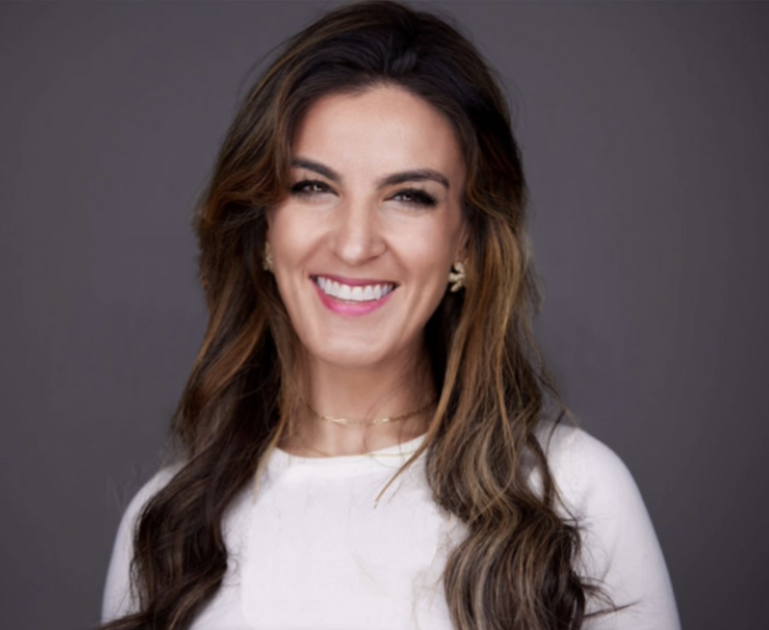
PESACH: AN INTIMATE CONNECTION
A Lesson On Intimacy and Relationships
ūĢųĘūÖų╝ų┤ū®ūüų░ū×ųĘųźūó ūÉų▒ū£ų╣ū¦ūÖūØ ūÉųČū¬ųŠūĀųĘūÉų▓ū¦ųĖū¬ųĖųæūØ ūĢųĘūÖų╝ų┤ū¢ų░ūøų╝ų╣ųżū© ūÉų▒ū£ų╣ū¦ūÖūØųÖ ūÉųČū¬ųŠūæų╝ų░ū©ų┤ūÖū¬ųöūĢų╣ ūÉųČū¬ųŠūÉųĘūæų░ū©ųĖūöųĖų¢ūØ ūÉųČū¬ųŠūÖų┤ū”ų░ūŚųĖųźū¦ ūĢų░ūÉųČųĮū¬ųŠūÖųĘūóų▓ū¦ų╣ųĮūæ ūāūĢųĘūÖų╝ųĘųźū©ų░ūÉ ūÉų▒ū£ų╣ū¦ūÖūØ ūÉųČū¬ųŠūæų╝ų░ūĀųĄųŻūÖ ūÖų┤ū®ūéų░ū©ųĖūÉųĄųæū£ ūĢųĘūÖų╝ųĄų¢ūōųĘūó ūÉų▒ū£ų╣ū¦ūÖūØūā
Hashem heard their cries, and Hashem remembered His covenant with Avraham and Yitzchak and Yaakov. Hashem looked upon the Children of Israel, and Hashem took notice (knew) them.
(Shemot 2:24-25)
In the above quoted passage from the Torah and one of the main themes of the Passover experience, we see that Hashem heard the cries of the Jewish people, which “reminded” Him of His covenant with Avraham, Yitzchak and Yaakov.
This teaches us a very important lesson about intimacy, connection and prayer.
Our connection with God is not only meant to be a way of asking for things, but it is a vehicle in which to learn how to connect with any important relationships in our lives.
Rabbi YY Jacobson, in many of his Torah classes, explains how each type of relationship in our lives (parent, spouse, friend, sibling, child etc.) is meant to teach us different ways to connect to Hashem. That is why Hashem has so many different descriptors and “personas” throughout the Torah. By realizing that these relationships are in our lives for this purpose, to learn how to connect better with Him, we can value the people in our lives on a whole new level.
UCLA professor and neuro-researcher Matthew Lieberman in his book, "Social: Why Our Brains Are Wired to Connect” explains how all humans need connection and that it is as fundamental of a human need as our requirement for food and water. Psychotherapists knew this for years, hence Attachment Theory and all of the many spin-off psychotherapy methods.
But finally, Dr. Lieberman could see and find proof using fMRIs that the power of connection is necessary for our very survival. He was also able to see the detrimental effects of not having connections with others.
The Torah, Attachment Theory and Encouraging Messages About Connection and Relationships
Perhaps that is why in the very first parsha in the Torah it says that it’s not good for humans to be alone. As researcher Brene Brown said;
“We are hardwired to connect with others, it’s what gives purpose and meaning to our lives, and without it there is suffering.”
Connection is so important that Hashem essentially maps out a prescription for maximizing different types of connections.
Let’s look at all the different words used in the above psukim:
ūĢųĘūÖų╝ų┤ū®ūüų░ū×ųĘųźūó ūÉų▒ū£ų╣-ūÖūØ, Hashem heard
ūĢųĘūÖų╝ų┤ū¢ų░ūøų╝ų╣ųżū© ūÉų▒ū£ų╣-ūÖūØ, Hashem remembered
ūĢųĘūÖų╝ųĘųźū©ų░ūÉ ūÉų▒ū£ų╣-ūÖūØ Hashem saw
ūĢųĘūÖų╝ųĄų¢ūōųĘūó ūÉų▒ū£ų╣-ūÖūØ Hashem knew
Many of the Jewish people were still worshipping idols at this point, which means they weren't exactly “loyal” to Hashem, yet, through this language, we see that Hashem still believes this relationship was worth investing in, especially when you have a strong history (Avraham, Yitzchak and Yaakov) and a bright future (the end game of His covenant).
Connections and Hope.
Here we see that Hashem recognizes the strength of our past connections with Him (through zechut avot) and He looks ahead at our future connection with Him at Har Sinai. We learn that the past is full of important data and that in order to fight for a relationship, there has to be hope for the future.
We get insights about how to connect, even when relationships are rocky (active listening, recalling, noticing and intimacy.)
By taking advantage of our direct connection with God we can learn ways to enrich all other relationships in the most profound ways. And we see that it can only be strong and healthy if someone is willing to put some skin in the game.
Relationships Take Investments and Energy To Keep Them Going
If you had a close connection with mom, I doubt you’d think, “Hey, I talked to my mom last month so that should be enough to keep us going for a while.” It doesn’t work like that. It is impossible for our relationships to be strong without putting in consistent effort. These psukim give us that formula.
Why God Uses Intimate Language
A Lesson about Focusing on Strengths and Overlooking Shortcomings
It is interesting to note that when we see the word ūĢųĘūÖų╝ųĄų¢ūōųĘūó (know) in different forms throughout the Torah, it is used to describe the most intimate relationships. Usually between sexual partners. When it’s used here in this passuk to describe Hashem’s relationship with B’nei Yisrael, we understand that Hashem decided at this point to focus on B’nei Yisrael’s virtues, rather than their shortcomings.[1]
This shift in focus is essential for any intimate relationship - to be able to focus on the good and recognize that we all have shortcomings. If Hashem can look past them, so can we. And not only that, we can work together to improve on them.
In healthy relationships, we overlook imperfections in others.
To be clear: imperfections are not abuse. There is a clear distinction.
Rav Soloveitchik explains why the Anshei Kenesset HaGadolah (men of great assembly) decided to institute formal prayer in place of our daily service (bringing sacrifices) after the temples were destroyed. Until this point, we had prophecy, but it was coming to an end soon and there needed to be a new way to connect with G-d. [2]
Judaism doesn’t support the use of intermediaries to access divinity, Judaism believes in the power of personal connection.
We are all created in the image of G-d [3] and we believe that each of us is unique and special to Him. After all, Hashem expressed that He wanted us to be an entire “Kingdom of priests and a holy nation.”[4] He refers to us as His beloved. [5] He is both our Father in Heaven and the Shechinah (when G-d is referred to as a manifestation on earth it is in the feminine because a primary caregiver has the closest influence and connection).
Wherever you are in life, you and your role are important.
Although each individual has different roles to play, Hashem didn’t want anyone to feel like they were “less than” in His “Eyes”. He wanted us to know that we all have a close and personal intimate relationship with Him. We don’t need to schedule a meeting with a secretary to speak to our parents, and Hashem is the Ultimate parent. He is the primary and the secondary caregiver.
During Passover, we recount these connections over and over again throughout the seder (for example, each of the four cups of wine represent each of the different forms of connection in the above passuk.)
In my work as a trauma specialist, I come across a lot of challenges with crisis of faith.
It is not uncommon for those who have experienced trauma to be angry with God.
I once heard that the prayer Avinu Malkeinu (Father in Heaven) can be incredibly triggering to many who have been abused by a father figure or if they felt that God did’t protect them from being hurt.
Repairing the relationship with God is an important aspect to healing - of course this is if the individual wants to and is ready work on that relationships. I’ve seen the healing work help many reconnect with their soulful and spiritual self after trauma.
Religion and spirituality aren’t always intertwined.
If you’ve been hurt by someone in a religious institution, you may want to find your own way to connect with your soul/spirit that feels safe and healthy to you and your health. And you may want to be mindful of who you reconnect with so that you have a good experience when you reconnect and associate with holiday times.
It’s important to mention that the obligation “to forgive and forget” is a misnomer.
If you have been abused, your goal is to heal yourself.
You have no obligation whatsoever to forgive your abuser.
One of the most powerful stories in Edith Eiger’s book “The Choice” is when she chose to let go of Hitler’s hold over her. It wasn’t about forgiveness, it was about the release. I don’t want to spoil that story for you, because you need to read the book for yourself.
Over the last few months, the themes of my blogs have been all about relationships and it looks like that theme is carrying over and influencing this redemption series. In the last series though, the focus was on romance and parenting, for the most part. This time, we are looking at reconnection, healing and redemption of the self and with our souls.
Inner Child, Relationships and Connection with Your Soul
We are exploring ways in which our relationship with our inner child and with minds, bodies and souls, can further our healing. We are also learning more about internal freedom and advocating for the freedom of others.
I hope you have a redemptive and peaceful holiday!
Esther
*originally posted on integrativepsych.co
As the Clinical Director and Owner of Integrative Psychotherapy, I supervise and consult mental health providers at Integrative Psychology on incorporating evidence-based trauma-informed practice into their work.
As a consultant, and trauma therapist educator, I Provide EMDR consultation for therapists accruing hours towards EMDRIA certification. As well, I incorporate Sensorimotor (trained in I, II & III) and IFS (trained in I & II) interventions into supervision. My Focus is on attachment trauma, developmental trauma, dissociation, and chronic anxiety.
As a trauma specialist, I provide psychotherapy to executives and professionals. I treat anxiety, depression, family-of-origin work, relationship/intimacy issues and attachment-related disorders. As well, I work with survivors of sexual abuse, trauma & complex PTSD; and the complicated grief, shame, and dissociative disorders that come along with it.
Website: Integrativepsych.Co
 Previous
Previous

